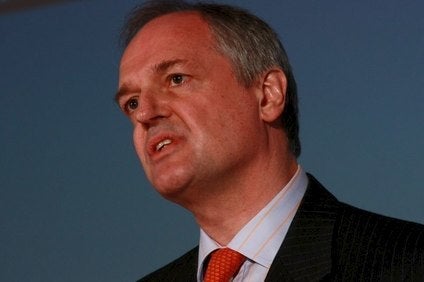
Unilever must respond faster to emerging consumer trends if it is to grow its struggling spreads brands in a low-growth environment, CEO Paul Polman suggested today (20 January).
The company booked full-year revenue that missed analyst expectations, with underlying sales growth of 2.9% versus a consensus analyst forecast of 3.1%. Growth in group revenues – particularly in emerging markets – slowed across Unilever’s operating units. Speaking during a conference call with analysts this morning, Polman said destocking issues in China weighed. “The slowdown in emerging markets continued. China stands out but almost all of the major [emerging] economies weakened,” he noted.

Discover B2B Marketing That Performs
Combine business intelligence and editorial excellence to reach engaged professionals across 36 leading media platforms.
Of the group’s four operating units, food was the only one to report a decline in sales during 2014. Food underlying sales were down 0.6% in the period. While Unilever has been hit by poor consumer sentiment in emerging economies, CFO Jean-Marc Huët said the weaker performance of the food business reflected challenging conditions in developed markets. Huët also flagged declining demand for its spreads brands, which offset higher sales in savoury and dressings.
“Today the reality remains that the majority of our food sales are in developed markets. Here we have been facing two big headwinds. The first is the difficult consumer and retail headwind… this has been giving soft volumes price deflation across our categories. Second, there is continued decline in margarine consumption.”
Huet said that the company had responded with a “new emphasis on cooking and baking”. Unilever launched 22 blended spreads, which combine vegetable oil and butter, with “plenty more to come in 2015”, he added. The company dubs the products “melange” spreads.
Polman conceded the spreads business had in the past lacked the agility to respond to changing consumption patterns. The company, he said, needed to make “sharper category choices”.

US Tariffs are shifting - will you react or anticipate?
Don’t let policy changes catch you off guard. Stay proactive with real-time data and expert analysis.
By GlobalDataThe chief executive said: “In spreads consumer habits have been changing faster than we have. People are eating less bread and spreading less margarine. We need to speed up our plans and have already started to do so with the melange launches.”
The next phase of the turnaround in spreads is the establishment of a separate operating unit for its spreads businesses in North America and Europe, a move announced last month.
Some industry watchers saw the creation of a stand-alone unit as a precursor to a sale of the business. Polman said the move would help the group in “unlocking opportunities” and “sharper targeting”. Huët added the business unit has “a clear objective” – to “stabilise sales while generating strong cash flow”.
That is likely to be a challenging task, given the macroeconomic conditions in Unilever’s developed markets. While the US has seen “modest” recovery, in Europe “conditions deteriorated and our markets contracted”, Polman observed. “A mindset of making do has become engrained” and “most consumers will look to make savings on their purchases so they can spend on the brands that matter most”. In 2015, the company expects more of the same.
Shore Capital analyst Darren Shirley said Unilever’s 2015 growth trajectory is likely to remain similar to last year. “We take this to mean [underlying sales growth] similar to the 2.9% rate reported for fiscal 2014, with management on the conference call suggesting a 2015 growth rate of 2-4%, with Q1 at the lower end of the range. Such figures are against a backdrop of expected global growth for FY2015 (across Unilever’s categories) of circa 2.5%.”
While Unilever “sharpens” its category focus through consumer insight on the one hand, it is working to reduce costs on the other. On a group-wide basis, core operating margin rose 30 basis points in fiscal 2014, contributing to a 6% rise in operating margins.
“Unilever is clearly trying to compensate for weak sales growth driven largely by weak markets…which management believe grew +2.5%, with much stronger margin and EPS growth,” Sanford Bernstein analyst Andrew Wood said. “Unilever was able to deliver very strong core operating margin growth in the second half (+85bps), well ahead of consensus (+30bps)… [This was] helped, in part, by a 10bps decline in brand and marketing investment in H2, but primarily due to a significant reduction in overheads as a result of Project Half.”
Polman insisted the company must keep up the pace on cost savings over the course of the next 12 months. “We need to recognise that we are in a lower growth environment and this is not likely to change in the near future. As in 2014, it is essentially that we keep driving cost savings hard… I believe that there is still ample room. Disciplined cost reduction is becoming engrained in the organisation. We will continue to deliver GBP1bn (US$1.52bn) cost savings each year,” Polman said.





